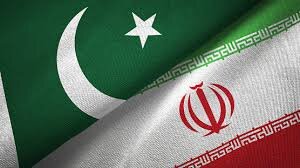By Muhammad Mehdi
The two countries should boost economic ties after years of diplomatic and political success

Islamabad – A shared border and a history of deep mutual respect form the bedrock of the enduring relationship between Iran and Pakistan. This bond is not just geographical; it's rooted in significant historical moments of reciprocal recognition and support.
Soon after Pakistan gained independence, Iran was the first nation to officially acknowledge its sovereignty. This spirit of solidarity was mirrored when Pakistan became one of the first countries to recognize the revolutionary government of Ayatollah Ruhollah Khomeini, solidifying a commitment to mutual understanding and cooperation.
Despite external pressures, most notably the United States' strong opposition to the Iranian revolution, Pakistan has consistently prioritized its own long-term interests and maintained its bond with Iran. This independent approach, solidified by General Zia's immediate recognition of the new Iranian government, illustrates Pakistan's commitment to charting its own course and valuing the bilateral relationship irrespective of external influences.
Today, the global landscape is complex, requiring thoughtful and nuanced foreign policy decisions. Both Iran and Pakistan understand that a stable and prosperous region depends on their strong relationship. While mutual needs and internal dynamics in both countries play a crucial role in shaping policy, both nations have consistently prioritized mutual respect and cooperation in the face of these evolving challenges.
The strained relationship between the United States and Iran, marked by sanctions and interference allegations, has created obstacles, impacting everything from bilateral trade to energy projects like the gas pipeline. Yet, Pakistan has consistently refused to view Iran through the lens of external interests, demonstrating a steadfast commitment to maintaining its own independent foreign policy.
This commitment includes an understanding of Iran's position and needs. As former Pakistani Foreign Ministers Khurshid Mahmood Kasuri and Jalil Abbas Jilani have indicated, Pakistan has on multiple occasions served as an intermediary, conveying Iran's perspective to the U.S. during times of heightened tensions. This demonstrates a unique trust and commitment to dialogue.
A lack of mutual understanding can be a root cause of conflict. With its deep ties to both Iran and the broader international community, Pakistan can act as a bridge and facilitate constructive dialogue. By fostering understanding, Pakistan can not only contribute to a more peaceful region but also secure its own stability, addressing long-standing regional challenges.
Expansion of Economic ties: next step in Iran-Pakistan relations
The historical ties between the two countries showcase a shared heritage and culture, which serves as a strong foundation for their relationship. These ties have also led to diplomatic engagements over decades, where Iran has always looked at Pakistan as a friend. The shared values, cultural ties, and mutual respect create a solid foundation for their relationship.
This is a relationship that greatly benefits the entire region as a whole. It is also important to note that there have also been times when Iran and Pakistan have come together to support the Muslim world on various issues. The unified stance of both Iran and Pakistan on the recent events in Gaza and Palestine reflects a shared understanding of humanitarian principles and a commitment to justice.
Pakistan, despite its economic difficulties, can hold a unique position as a trusted partner for Iran in its economy and trade.
The potential for increased economic and trade relations between Iran and Pakistan offers a pathway toward greater regional stability. Increased economic interdependence can create shared prosperity and strengthen their bond. These countries have a shared goal of securing peace in the region and should work together to achieve this goal. These two countries have proven they can work together, and such collaboration can be a source of inspiration for other countries.

No comments:
Post a Comment